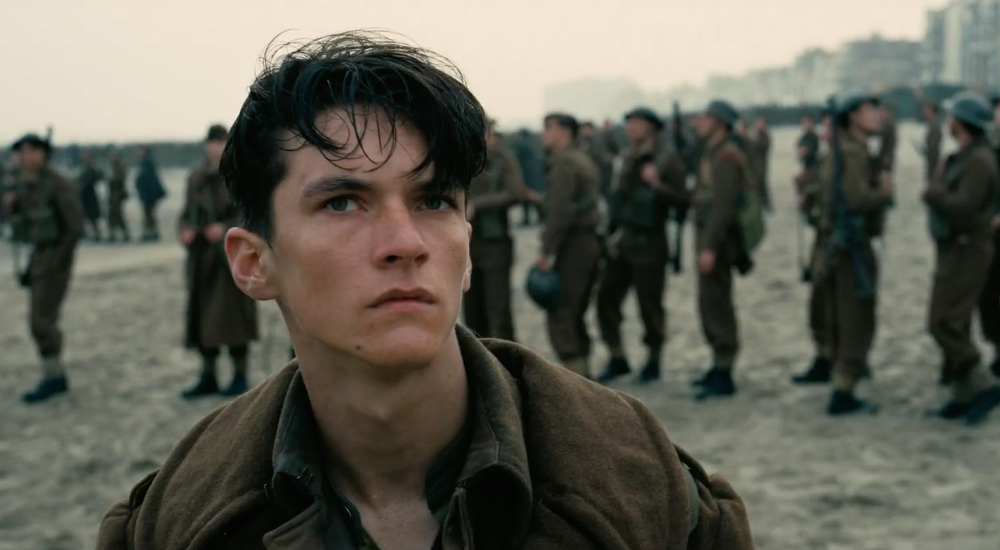“If we go there we will die.”
Dunkirk, Christopher Nolan’s new film surrounding the evacuation of Allied soldiers from the beaches of Dunkirk, France during World War II, is a unique and cleverly crafted war film that centers on the power of humanity and the sheer will to survive.
Nolan wastes no time setting the stage (and tone), opening with a poetic, albeit torturous sequences as we watch a handful of young soldiers grab at flyers slowly making their way down from the sky. Almost immediately they are gunned down by the enemy. The lone survivor, Whitehead’s Tommy, ultimately makes his way to the beach where hundreds of thousands of soldiers look out to the sea in hopes of a miracle.
But this is only one of the three stories that forge together to create the much larger narrative. The other two arcs center around Tom Hardy’s Farrier, a fighter pilot sent to counter Germany’s airstrike, and Mark Rylance’s Mr. Dawson, a small boat owner who battle the high seas in an effort to rescue troops. Both men prove imperative to the overall story, providing a true 360 degree look at the heroic moment, though these two often play secondary to that of Tommy.
Nevertheless, Dunkirk isn’t your typical war film. Instead of relying on the systematic clichés, Nolan has opted to utilize his characters and their unknown fate. Generating a situation where no life is too precious and no actor is guaranteed safe travels home, the film lives in that grey area of uncertainty, pushing your anxiety closer and closer to the surface with each passing minute - cruely never relinquishing.
It helps that Nolan has amassed an impressive rolodex of talented actors, pulling at both Hardy and Cillian Murphy to deliver some of the film’s most heartfelt and authentic moments as Murphy finds himself on a rescue boat, not wanting to return to the beach he so desperately worked to get off of.
But beyond the acting lies the true brilliance behind Dunkirk: the writing. Honest, emotionally and painstakingly heartfelt, the film flows between story arcs flawlessly, jumping back and forth in time to add layers to the already complex narrative and give audiences a story that is intelligent and entertaining.
Refusing to overlook the details, Nolan works hard to ensure that everything is right, dialing into the soldier’s psyche as he goes against the norm and takes you inside their head as doom sits front and center. Nolan also refuses to let dialogue dictate his path, using visuals to stimulate the journey as we watch fighter pilots duke it out in the air, a torpedo sink a massive ship and everything in-between.
As we experience time jumps, switch backs, and different story arcs, you can’t help but bask in the execution that lies within the framework of it all. Quite possibly Nolan’s most powerful and complete film to date, Dunkirk successfully captures the raw emotion and authenticity that so many films fail to navigate. Pure and heartfelt, the story is courageous and addicting, making it an undeniable success in modern filmmaking.

